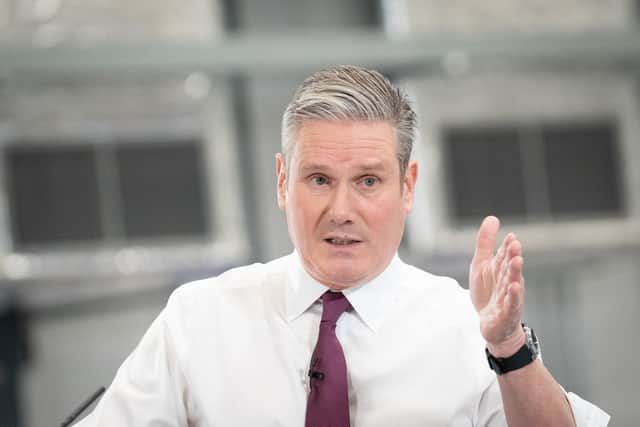Tony Blair’s New Labour was fizzing with energy, Sir Keir Starmer seems intent on boring us all to death - Bill Carmichael
Sound familiar? But this is a description of 1997, not 2024, and although there are clear similarities between the two eras, there are some significant differences too.
When I teach students about that 1997 election I am sure it sounds like ancient history to them, and that’s understandable if you weren’t even born until 2005. But for some of us old duffers who lived through that era it seems like it was only yesterday.
Advertisement
Hide AdAdvertisement
Hide AdThe British political scene in the 1980s was dominated by Margaret Thatcher who became the first Conservative Prime Minister since Lord Liverpool in the 1820s to lead the Tories to three consecutive general election victories, two by margins approaching a landslide.


But in 1990 the Conservatives, in typically ruthless fashion, defenestrated their most successful leader, largely over the unpopular poll tax and her opposition to a federal Europe, and she was replaced by her former Chancellor John Major.
An election was due in 1992, and then, like now, the Labour Party was at least 20 points ahead in the polls, and everything pointed to a victory for their leader Neil Kinnock.
Indeed, Kinnock fatally behaved as if he had the election in the bag, and appeared at a triumphalist rally in Sheffield a few days before polling day screaming: “We’re all right!” like some American rock star.
Advertisement
Hide AdAdvertisement
Hide AdOh the dangers of hubris, because when polling day arrived in April John Major pulled off an entirely unexpected victory, handing the Conservatives their fourth win on the bounce.
But then six months later, the Conservative government’s reputation for sound economic management was absolutely shredded by the Black Wednesday sterling crisis, which saw the UK unceremoniously dumped from the European Exchange Rate Mechanism, a damaging rout of the pound and interest rates temporarily rising to an eye watering level of 15 per cent.
After that it seemed only a matter of time before the Conservatives were ousted, but Major’s administration struggled on for another four plus years, mired by financial and sexual scandals.
The Labour Party - or New Labour as it now dubbed itself - led by Tony Blair, with Gordon Brown as Shadow Chancellor, was busy preparing for government, crafting a ruthless electoral machine and, unusually for the Left, prizing power over ideological purity.
Advertisement
Hide AdAdvertisement
Hide AdOne of the ironies of this period was that Labour adopted the spending plans of Conservative Chancellor Kenneth Clarke, in order to reassure voters that they would handle the nation’s finances responsibly. In other words Blair and Brown realised that Labour could only win by becoming more like the Tories.
One of the big differences between then and now is that Labour was fizzing with energy and purpose, whereas today Sir Keir Starmer seems intent on boring us all to death.
Blair adopted US President Bill Clinton’s successful policy of triangulation, mixing traditional left-wing policies with those more associated with the Right, such as being tough on crime and upholding fiscal responsibility. When the election came in May 1997 it resulted in an emphatic victory for ‘new Labour’ with the party securing a 197-seat majority, and ushering in 13 years of Blair-Brown rule.
So do the elections of 1992 or 1997 have any lessons for us as we enter 2024? Certainly, Sir Keir needs to steer well clear of the dangerous overconfidence of Neil Kinnock. Twenty point leads in the opinion polls mean little when voters actually decide to put an X on their ballot papers.
Advertisement
Hide AdAdvertisement
Hide AdHe could also do with an injection of excitement that characterised Blair’s 1997 campaign. Admittedly, we haven’t seen the Labour manifesto yet, and it may contain some firecrackers, but so far the policies have been underwhelming, and I detect very little enthusiasm among voters.
And this is also a critical year for Prime Minister Rishi Sunak, who will face voters as party leader for the first time. He took over a party in meltdown, and has successfully steadied the ship. But all his efforts to turn the opinion polls around have so far failed. Will Sunak be like John Major in 1992, and snatch a victory from the jaws of defeat, or like John Major in 1997, heading for a comprehensive thumping?
Comment Guidelines
National World encourages reader discussion on our stories. User feedback, insights and back-and-forth exchanges add a rich layer of context to reporting. Please review our Community Guidelines before commenting.